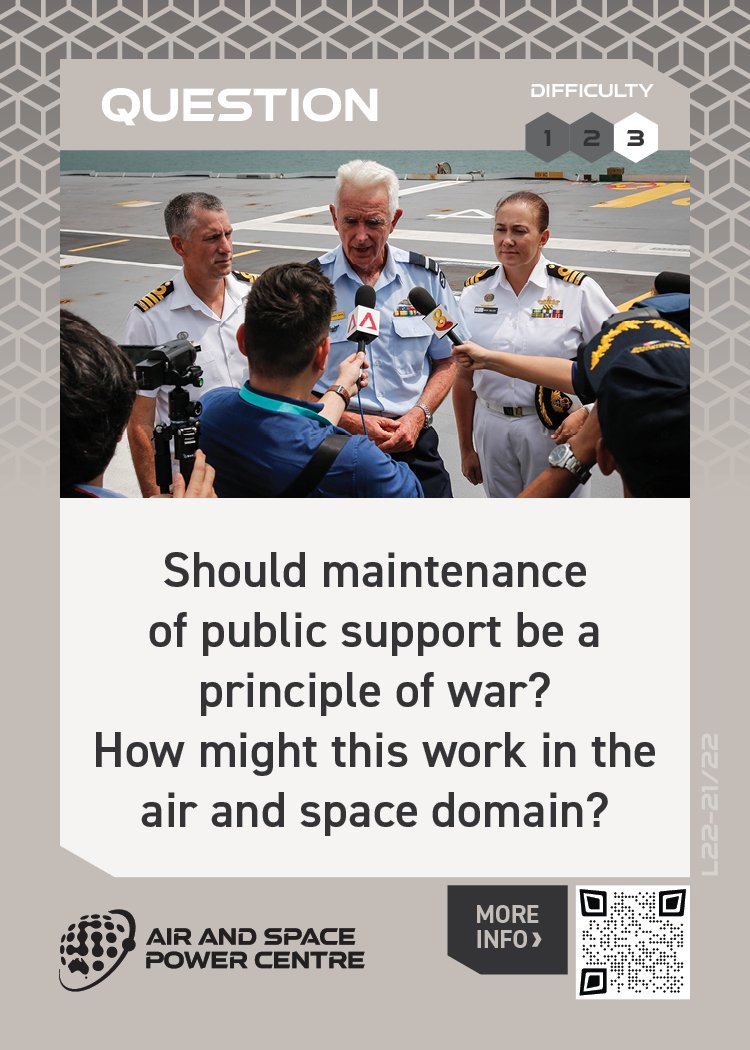
Overview
Should maintenance of public support be a principle of war?
What are the current 10 ADF Principles or war?
1 - Selection and maintenance - Clear expression of the aim of a campaign, operation or strategy anchors the effort to a single cohesive purpose.
2 - Concentration of effects - concentration of superior force or combat power at the right place, at the right time, and in such a way as to achieve a positive and decisive result.
3 - Cooperation - harnesses the collective will and capabilities of all forces and agencies towards the end state. Interoperability and liaison are key elements in cooperation, and cooperation is fundamental to integration.
4 - Offensive action - is the application of lethal and/or nonlethal means to achieve effects and objectives across the spectrum of competition.
5 - Security - allows forces freedom of action to operate offensively and denies the adversary an advantage.
6 - Surprise - Surprise is a key element of all military action, and is not limited to crisis and conflict. It is a fundamental requirement of a smaller force if it is to gain an asymmetric advantage over a larger force.
7 - Flexibility - is the ability to adapt to and capitalise on unforeseen circumstances, friction, resistance or setbacks without losing sight of purpose and aim.
8 - Economy of Effort - is the prudent allocation and application of ADF and civil resources to achieve desired results.
9 - Sustainment - includes all logistics and administrative action necessary for the efficient and effective support of a force.
10 - Morale - is an essential component of combat power. It feeds the spirit and the will to fight. In a regional setting, the legitimacy of Australia’s actions—and strong and consistent national support—will be key drivers of morale.